This post is about learning to be parents on the road. How we handled parenting children while travelling, without routine, without consistency, schedule, or any of the things the parenting rule books will preach.
We believe in throwing rule books out of the window.
Parenting and Travel is an extract, edited, from our e-Book, The Seven Year Ditch.
I have some unpopular parenting opinions, but it all seemed to work out well.
Learning To Be Parents On The Road
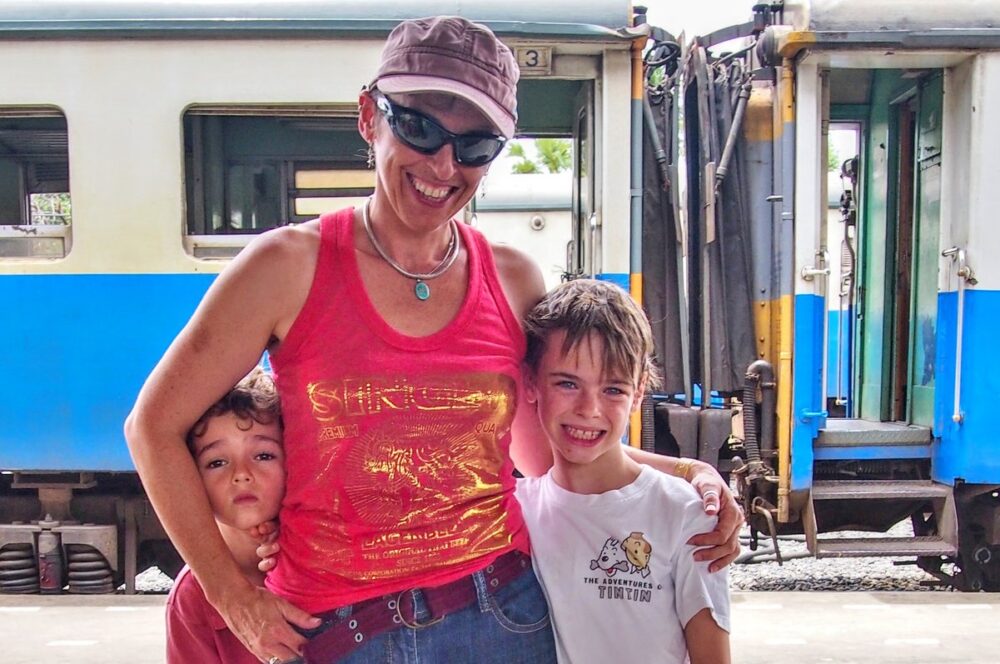
This section is the most difficult to write and honestly, I’d rather leave it out because it’s a non-issue to us.
It’s also the part people ask about the most.
Somehow people expect there to be problems with travelling with kids and they probably don’t believe me when I tell them it was no problem at all.
Our normal life just continued, in different places, with more fun, more adventures, and less housework.
Family Life While Travelling
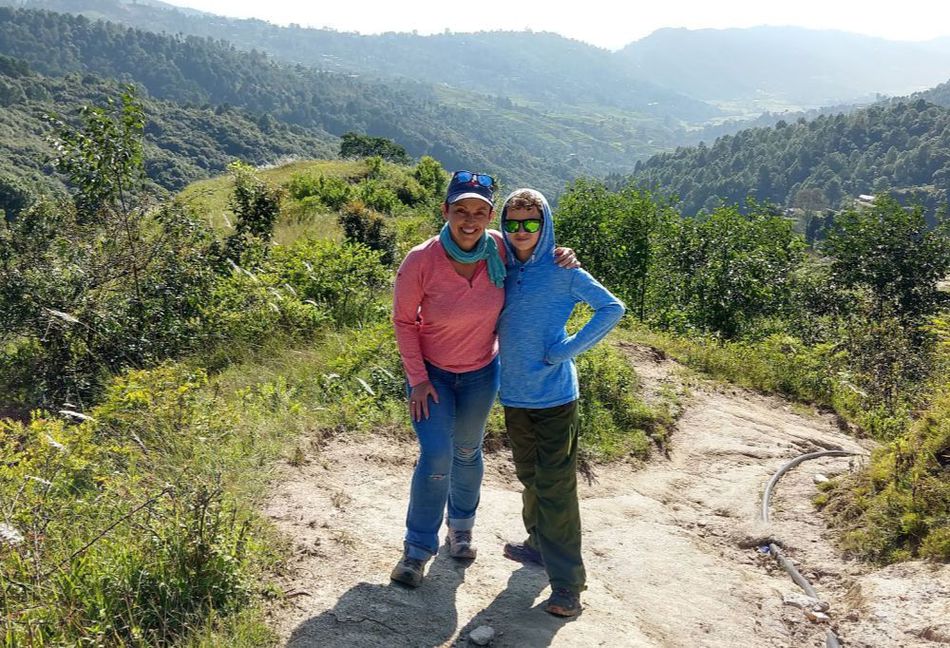
Because we’ve always done life this way, nothing much changed other than dad was around all the time.
All four of us being together was no problem at all, other than, one-on-one child/parent travel is easier sometimes.
I’ve read, often, that families have struggled to adjust to being together all the time and that the change from work and school to being together all day every day was problematic.
I can’t help you with that, sorry. It wasn’t our experience.
It wasn’t a problem but kids want your attention. If you’re talking about adult stuff, boring stuff, like passports, visas, and currencies, the kids don’t have your attention.
Without another adult around they have your full attention. Take away a sibling and they have your full, complete, undivided attention.
Divide and conquer is a good strategy to pull out sometimes.
One-on-one travel is easiest in terms of child management and contentment.
However, there’s no way I could drag these two around the world without Chef, no way at all.
There’s lots to be done and one adult always has to have an eye and an ear on the kids.
The other adult can get stuff done.
Chef is our fixer. He’s the braun, half of the brains, and the workhorse behind travel logistics.
He is indispensable.
Ways To Parent While Travelling
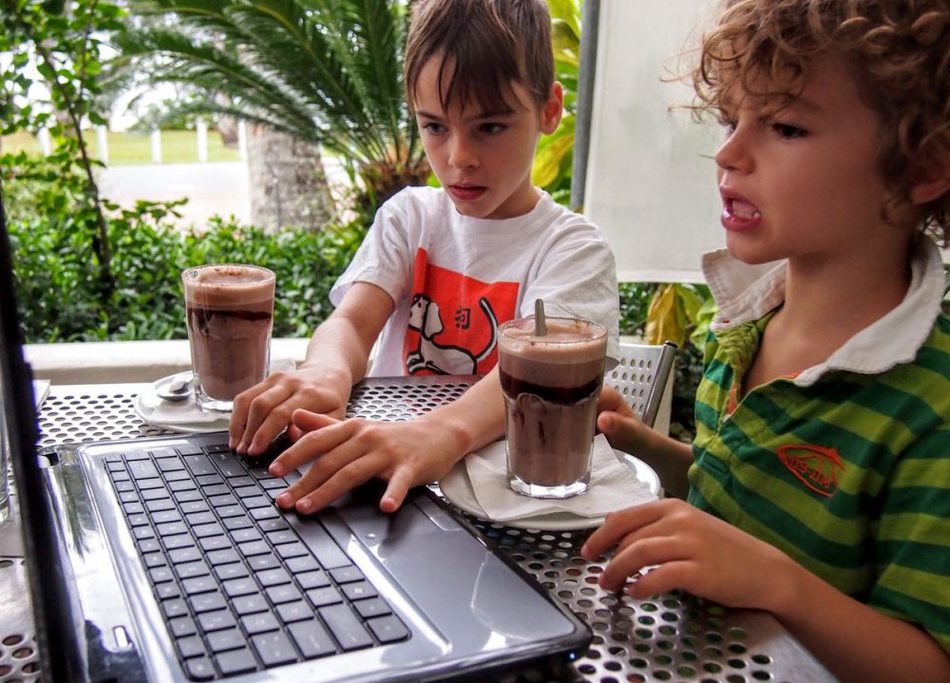
No child comes with an instruction manual and no two kids or parents are the same.
There are a million ways to parent and most of them work out fine.
I’m not presumptive enough to tell you how to parent but I can tell you what worked for us and our kids in a full-time travel environment.
We always aimed to be present and available.
There was very little by way of me-time or couple-time but a whole bunch of us-time.
I was never a mum who needed breaks from her kids. That just never happened because I never needed or wanted it to happen.
We didn’t need “date night” or “girls’ nights” or “nights out with the boys.” Those things are just not part of our make-up.
They’re absent. I can’t understand why anyone would want those things just as many people wouldn’t understand why I don’t.
I wanted to spend every second I could right by the boys’ sides and that was something I’d felt from the moment they were born.
They were born in London by the way. I guess my parenting style is more British, my husband’s style is maybe more Australian.
I don’t really know if there’s such a thing as a national parenting style for those two countries but I do know that parenting around the world differs.
For instance, in Vietnam, tiny tots can study all day in school and then take more classes late into the evening. Getting good grades must be hugely important to many Vietnamese parents.
I think because I’d gone through the system myself, got the grades, earned my degree and saw that it was not, at all, the key to happiness, I never made that a focus in the children’s lives.
Of course, I wanted to keep all options open for them. If they decided to become doctors or lawyers I always wanted that to be possible. I did, however, tell them fro birth not to go into the medical profession.
I did 20 years in hospitals, I didn’t want that for them. Their father has told them never to go into his industry either.
Their father did really badly in school but had a great job, and loved his life. Paper qualifications just didn’t matter in my eyes unless you had a specific purpose in gaining those certificates.
But of course, they’ll do what they choose. They can finish up those A levels at any time and continue to university if they choose.
Safety
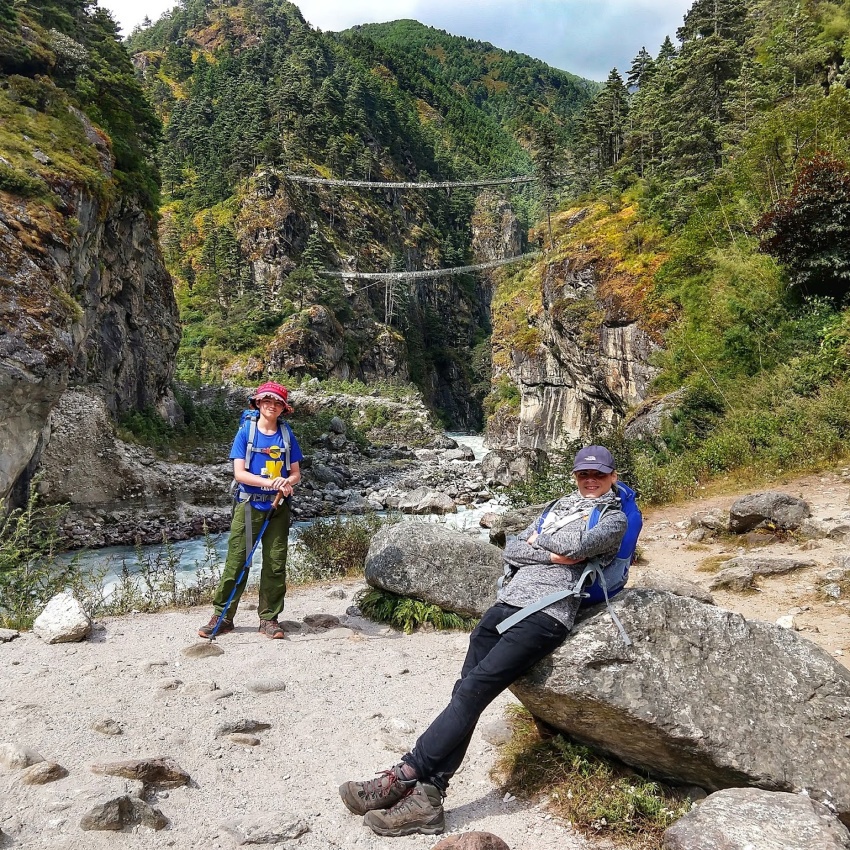
Yes, we thought about safety, and yes, you should too.
We never thought that our kids were in greater danger in the countries we visited than they would be at home. Not even in El Salvador.
As kids grow they get sick, and they have accidents. Where they are in the world doesn’t make much difference, but supervision does.
We supervised the heck out of them.
This was one of my issues with the school my elder son briefly attended.
There wasn’t enough supervision and he got hurt too often.
Safety considerations are vital when contemplating parenting and travel for extended periods, raising kids on the road.
We always had a plan if they got lost and we were sure they knew our plan. That is in our post on child and toddler safety, but briefly, it was, stay put.
We did a parental risk assessment on everywhere we stayed. We checked for glass, steps, drops, balconies, windows, and dodgy electrics.
If a lodging of any sort had anything we felt was unsafe we wouldn’t stay.
We always had a fire plan, we preferred low-rise places to stay with an option to get out of the window in case of emergency.
We always shared rooms with the kids and never left them alone.
Near traffic or water or in crowds, we held hands tight. We took them to a Full Moon Party in Thailand once. Which they loved, by the way.
Their hands were in ours the whole time.
On public transport we were more easygoing. Not using car seats didn’t phase us and I think that if that’s your worry before you set off, you’ll soon get used to not being that cautious.
We did find cycle helmets for them as often as we could, or, if we thought there was real risk, just didn’t cycle.
You do have to be a vigilant parent to travelling kids but you have to be that way with kids anyway.
It wasn’t an extra strain or burden and they injured themselves less on the road than they had previously at home or in school.
I always felt they were safer with me, anywhere, than without me, anywhere.
Routine and Consistency
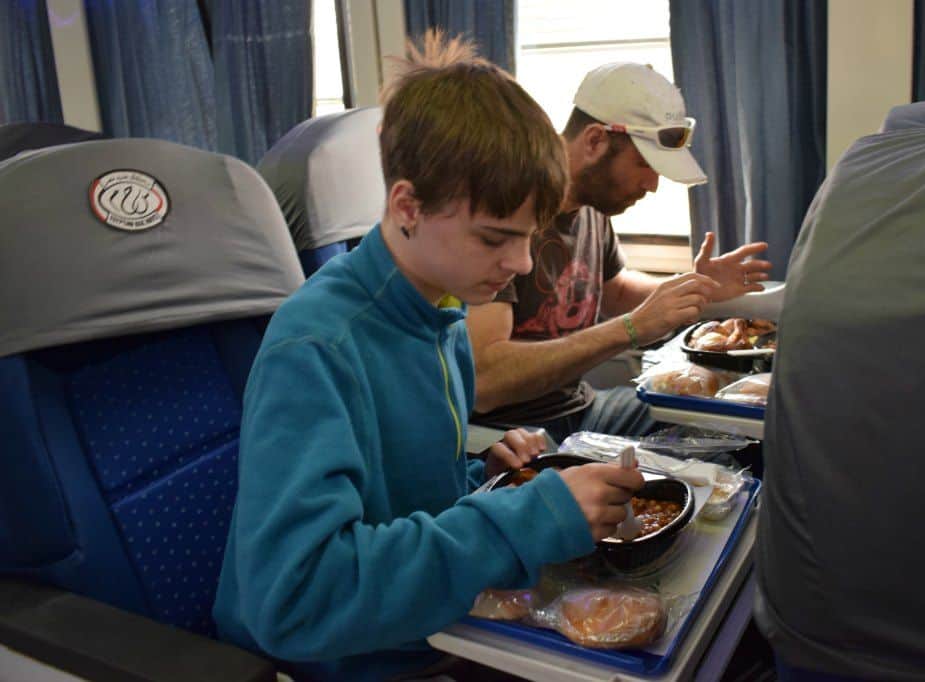
During our years on the road it was unusual for any two days to be the same.
We spent extended periods in London, Vietnam, and Romania and during those times, yes, things became predictable and steady.
The same things happened day after day. I had to cook, clean and do laundry, chop wood and build fires. We even had pets.
At those times there were chores that needed doing and we all had to chip in. We had no washing machine, no modern conveniences, we even had an outdoor privy in the depths of Romania’s harsh winters.
It was fun, and the kids learned a new way of living.
Were the boys more happy during those times or routine? I don’t think so.
Were they “easier”? No. Absolutely not.
Parenting was easier when we had lots to do and lots to do begs variety.
The kids always went to bed early at the same time as us and mostly got up when they were ready.
There was no consistency on the road, even in bed-times. How can there be when every day is different and the next bus or train could be at 5am or 10pm?
There was no bedtime routine whatsoever and it wasn’t an issue.
There were few rules beyond just be a good human. I posted before about how my kids grew up with very few rules.
It’s a big part of how they start to become masters of their own lives.
Now I’m in bed by nine and my teens are night owls, it still works.
We’re still happy doing it our way.
Know Your Kids’ Needs
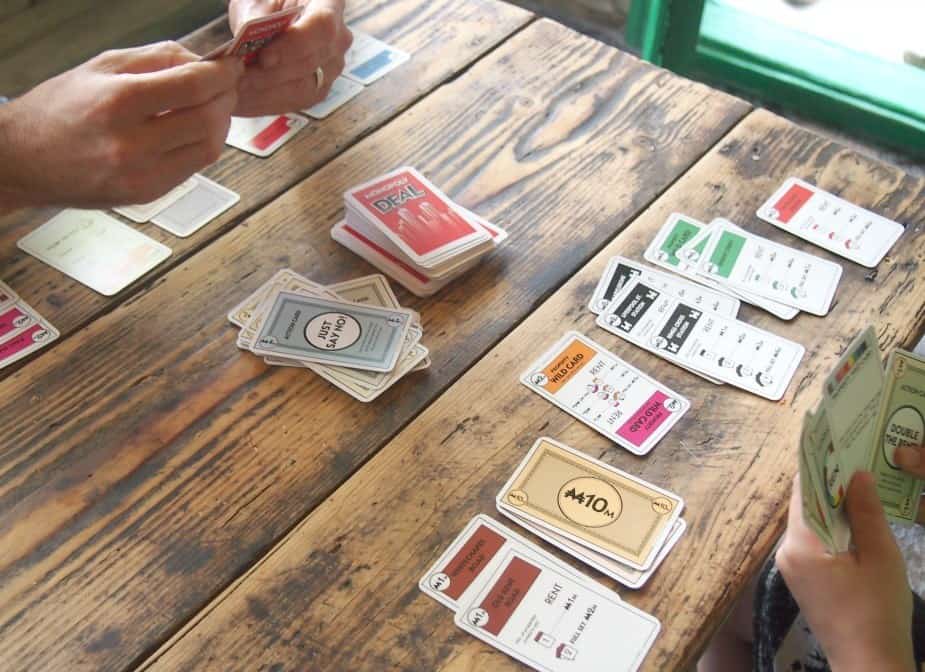
There was always a plan. After that first day in Kuala Lumpur when I got off a train without a plan, I learned to have one.
My child doesn’t appreciate that mummy quite likes aimlessly wandering and usually isn’t at all phased by being lost.
He is, he needs to know what we’re ding and where we’re going, so we have a plan to keep him happy.
Know your kids’ needs.
One of ours needed “stuff” the other is as minimalist as I am.
We didn’t try to change this inconvenient trait, we supported it.
We carried 16 cuddly toys and a store-full of Lego around the world for years no matter how difficult it was.
Carry-on only travel came later.
You have to put the kids first in everything. Make sure they’re comfortable, well-fed, happy, and feel loved and secure.
This involves your time, plus lots of ice cream, along with doing things they enjoy as often as possible.
My kids enjoy card games like Monopoly Deal and Uno so they were always in my bag to pull out at the dinner table or in airports.
I hate playing games, I hate playing football, but I did it for them.
Make everything as easy on them as you can. If they’re enjoying something never drag them away, unless you have a plane to catch.
There’s a chapter in Jordan Peterson’s book, 12 Rules for Life, titled “Never disturb a skateboarding child.” I agree.
Also, listen to them, really listen and value their opinions and wants as much as you value an adult’s. Quite often they have strong reasons behind their preferences.
Be their friend, playmate, and companion.
An experienced travelling mum emphasised this to us. Our lovely friend Penny in Romania. She raised three great kids on the road, grown now.
She always said, be their schoolyard buddy. Our kids adore Penny because she treats kids as equals.
Making Friends and Socialising For Digital Nomad Kids
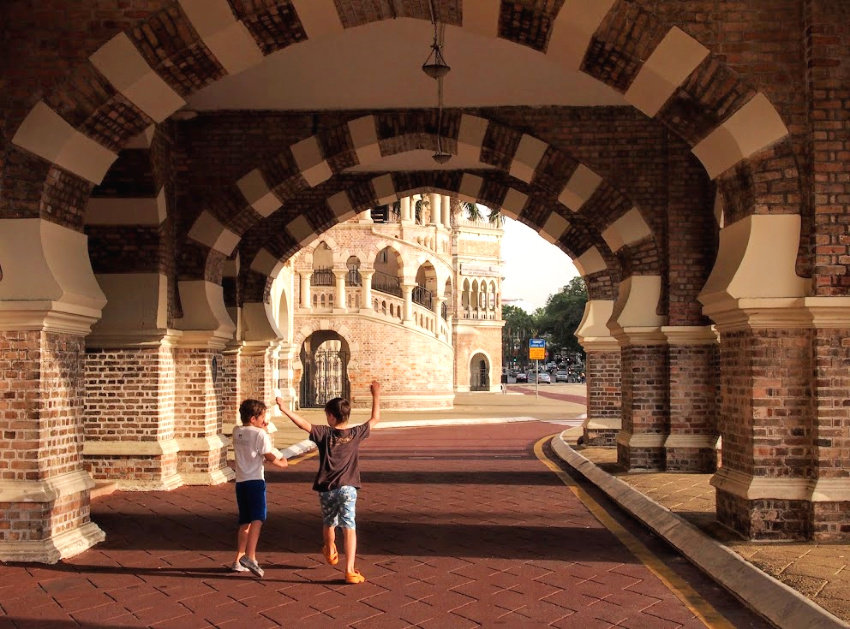
People often ask if my boys played with local kids or other travelling kids on the road. No, neither. Very, very rarely.
If they did interact with other kids they usually had to be English speakers.
I don’t know who makes this stuff up about kids not needing language to play, it’s rubbish.
Maybe it works for toddlers but not for older children.
It was very noticeable that they would seek English-speakers to interact with.
That thing about kids being natural language sponges, that’s a myth too in our experience. They have to want to learn.
I came out of Romania after three years there, speaking way more Romanian than the boys.
I wanted to learn, they didn’t. Being able to communicate with a village child was far less important to them than their desire to not study Romanian. That surprised me at the time.
You can’t force a child to learn if they don’t actively want to.
They picked some phrases up by assimilation, they picked up a little of most languages, but they never tried to memorise as I did.
There are still many Romanian phrases we use in our day-to-day family chatter now, so some stuck, but they never picked up enough of a language to fully communicate.
Did they make new friends on the road? Yes, several, a handful of similar aged kids plus a whole bunch of adults who I hope will be their friends forever.
But mostly it was just us.
We visited with friends and family often too. Most years we’d spend some time with a grandparent or great grandparent.
Our family and friends are spread all over the world. Had we not made the choice to travel, Great Grand Nanna would be a stranger to them today.
As it was, we saw her in the UK often and she was able to come visit us in Romania. She had a wonderful time in our village and seeing the sights.
To make real friends while travelling you have to be in one spot for months and the whole family has to click. It doesn’t happen often.
We met quite a lot of people we actively didn’t like and I’m sure plenty didn’t like us either, but there were a few gems in there.
When you’re travelling full-time you’re busy.
It’s not like being at home where you have empty weekends or school holidays, even after school doesn’t exist.
It’s a far more full, active lifestyle and I don’t think they ever had time to wish there were other kids around.
Possibly they never thought that way because they’d never been in the school environment.
I don’t know, we were too busy going places and doing stuff and there wasn’t a control group for me to test this scientifically.
Worldschooling
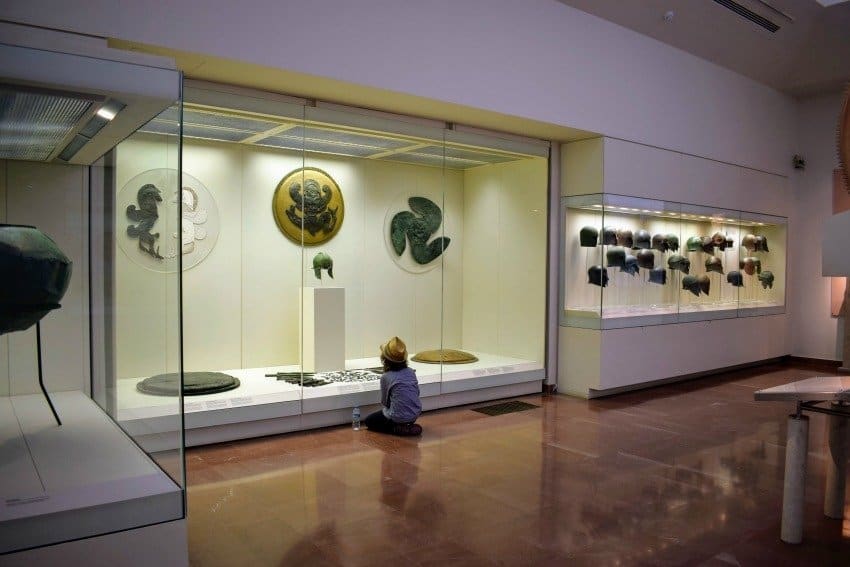
If we did have extended quiet periods there were books to read, computers to use, and school work to do.
We were never mean with the screens and a big chunk of their proficiency in many things today is because of that.
This freedom to use and master technology has absolutely been a big chunk of their worldschooling upbringing.
Possibly my most unpopular parenting opinion, after school being unnecessary, is we don’t limit screen time at home.
We don’t limit book time either. But when we’re out of the house I’m a tyrant.
They had Kindles to read, no phones. Our screens were laptops until the boys were teens and those laptops stayed at home.
This thing, worldschooling. It happens every day with minimal effort.
They went places, saw things, and found out about things. They are worldly-wise and have experiences in their data banks that you couldn’t even imagine.
If you want to know what worldschooling costs for parents, we have a post covering that too.
They’ve pushed themselves and found that they’re capable of anything. They’ve experienced hundreds of ways of living and diverse cultures.
We have too many posts on learning while travelling on the website. Start at our homeschooling while travelling page.
I’m very pleased to be able to share that my elder child has now passed exams with great grades. He has been employed, has various skills and practical qualifications, and is now my business partner.
Parenting Choices and Education
I wanted the kids to have an outstanding education, as I did. But not in the same way.
We tried the local school and saw that it wasn’t going to be a good fit. I had my son out of there before he was 7. My younger child never went.
From that point, we started to hack their education.
The boys were homeschooled, worldschooled, and unschooled, before eventually sitting iGCSE exams and getting great grades.
They were in a fully accredited online international school for the last year or so of highschool. This gave them a great chance to see what formal education was like.
That too, was a good experience for them and there are skills required to pass exams, that’s what the school gave them, a blueprint as to what was required to get those As.
We left to travel when the kids were 6 and 8 years old, reverting to being British and providing an education more in alignment with the UK’s curriculum.
Do I think school would have been better for them? No, absolutely not.
They had an incredible childhood, we stayed close as a family, and our outcomes were more than I even hoped.
I really don’t like the school system and I firmly believe that most kids, if their parents are available to be with them and willing to do the work, would be better off out of it.
It’s obviously not possible for everyone, families have bills to pay, but we managed to find a way to make it work.
Being there for kids constantly and shouldering the full burden of their education and welfare is work, hard, unpaid work.
I wouldn’t change a thing though.
I also know, for a fact, that passing exams is easy enough with next to no formal schooling.
Do I think exam passes are necessary for a happy, fulfilled life? No. Not at all.
I have all the exam passes and a degree. I don’t use anything I memorised to pass exams today in my life.
Other than, it came in handy to help the kids with those topics.
Topics which they will also probably never need.
My elder son has had 2 jobs. Neither related to his History and Biology passes. He’s in a good place and started taking A levels.
Do I think education is important? Absolutely, that’s why we travelled to over 50 countries with the kids. Education and passing exams are not the same thing.
Parenting & Travel
I’m not really the sort to think much about “parenting” as a verb. I simply went about being a mum, the source of love, comfort, and support as best I could.
Sometimes I messed up, we all do. But I tried my best.
I wanted my kids to have happy, joy-filled, mind-expanding childhoods and I think we achieved that.
I didn’t want them to be obnoxious people.
I did my best to steer them towards pleasant, but it’s nature v nurture there. They’re great kids, both unique and different.
Consistent bed, bath, and story were irrelevant once we hit the road because getting them to sleep at a certain time every night wasn’t an issue.
Really, I’m not exactly sure what “parenting” is. It’s a little alien to me.
I read back through this post wondering what I’d missed and realised I’d missed so many things. Parenting is your whole life when you have kids and, like education, can’t be broken down into boxes. At times I’ve been a lousy parent, just like you have, but my intentions were good and you see, I’m human. Sometimes I mess up. You tell me, in the comments, what does parenting mean to you?
If you'd like to hire a car during your stay, use this car rental comparison tool to find the best deal!
We also suggest you take a look at this company to get a quote for all kinds of the more tricky adventure or extended travel insurance.
Try Stayz / VRBO for an alternative way to find rentals on homes/apartments/condos in any country!



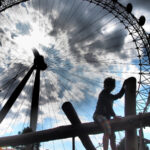
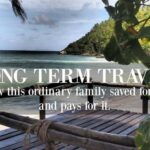
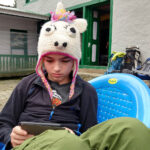


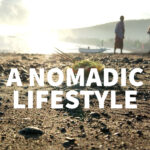
Thank you for the advice.